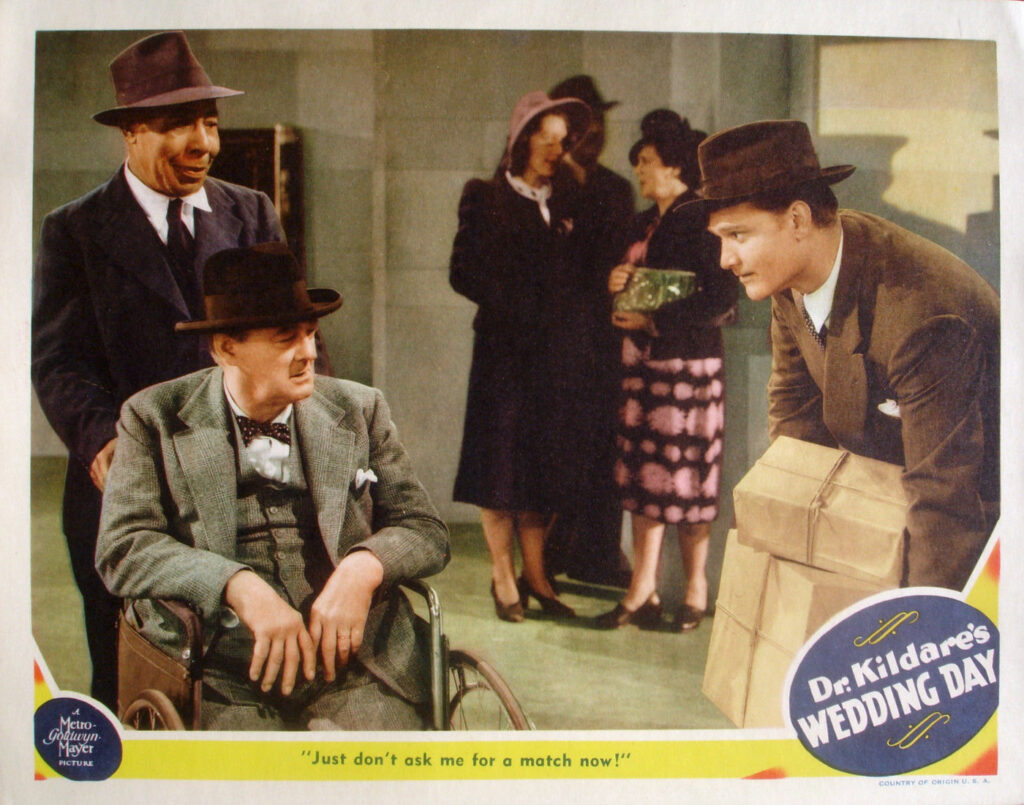There are a number of remarkable things I noticed in the Douglas MacLean comedy “One a Minute” (1921) as I worked on it for the new DVD release. One of them was the character played by African-American actor George Reed, and the way he is portrayed.
It’s not the usual stereotype character one sees in films of the 1920s, and his make-up and costuming are not exaggerated or tweaked in any deliberate way to make him stand apart. He’s just another one of the local townsfolk of the film’s Centerville.
In One a Minute, Douglas MacLean claims to have discovered a panacea cure-all at the rural small-town pharmacy he’s taken over, and this is announced in the local newspaper’s extra edition. We see a crowd of townspeople reading the announcement that the miracle drug is now available, with Reed at the center. It’s he who is the first to exclaim something about the exciting news and pretty much leads the charge into the pharmacy, with everyone following.
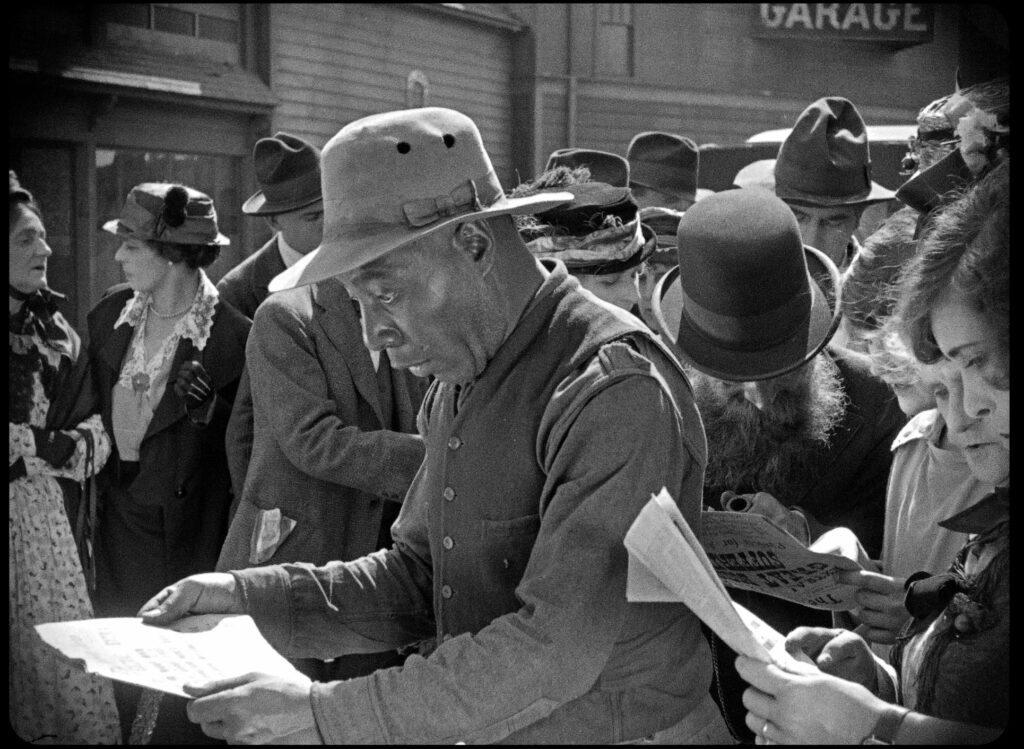
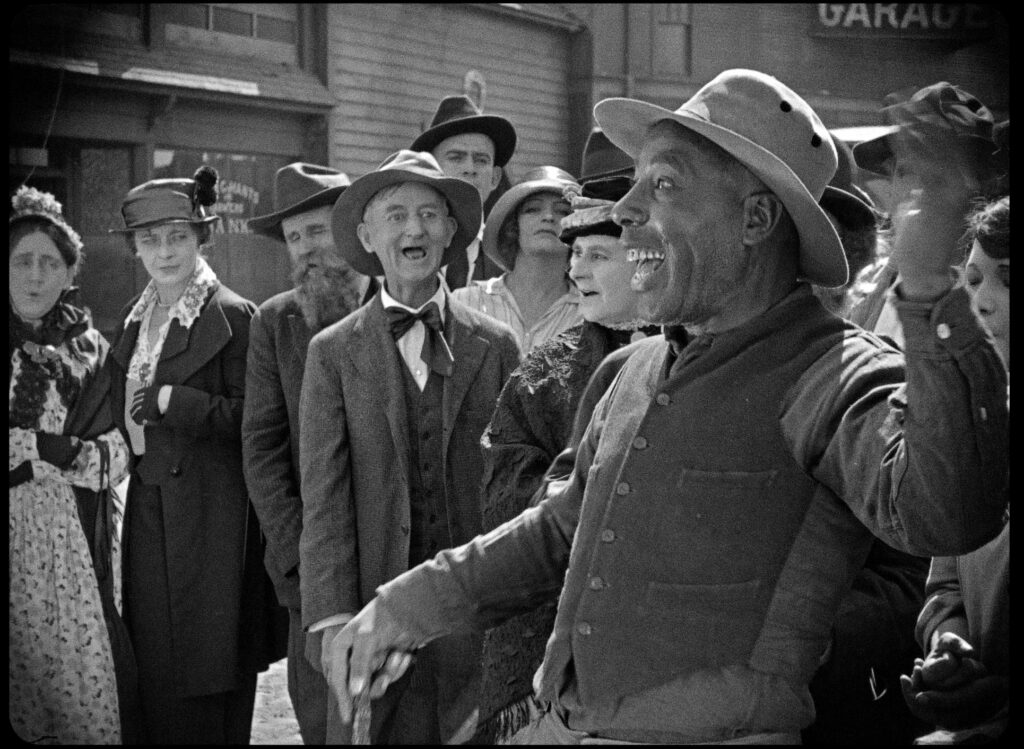
He’s at the center of the cluster of townspeople who gather in the shop to try the medicine, and is one of the people who gives it a try and is cured. Later in the film, there is a trial held with the entire populace of the mythical Centerville attending. MacLean’s character has been accused with some sort of medical fraud, and a variety of expert witnesses take the stand. So does Reed, having been cured by “Knight’s 99”, who gives his testimony about it. When the judge nearly passes out from some malaise, Reed’s character suggests to MacLean that the judge be given the medicine…which cures him.
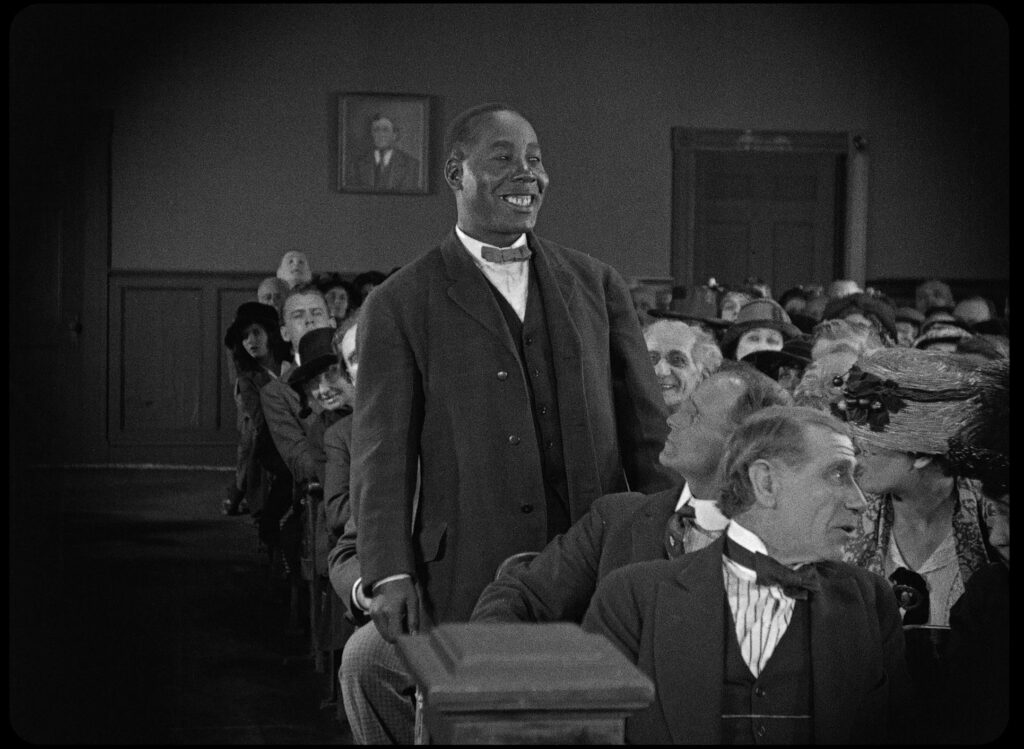
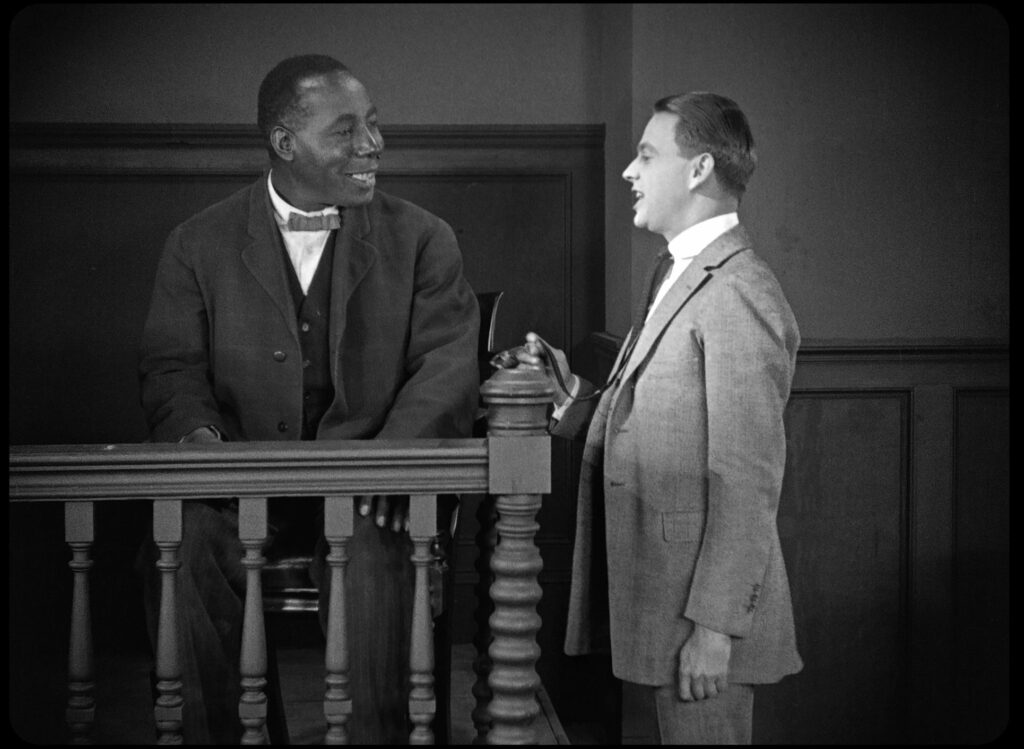
What struck me was how matter-of-factly his character is treated by everyone else. It’s not ideal, of course, but it’s way more natural than you’d expect from a 1921 film. The people around him aren’t laughing at him — he’s part of what’s going on (even if he is the only African-American in town, apparently) and his appearance isn’t necessarily there solely as a punchline, as one usually finds in silent films. He does have a couple lines of dialog that are shown in title cards, complete with phonetically-spelled southern dialect which is typical for films of the silent era.
And Reed’s got a great screen presence and personality to boot. This is what made me wonder “who is this guy?” and look him up, and assemble this post.
George Reed’s first film was the prior year, where he played Jim in the 1920 motion picture of Huckleberry Finn. A quick trip through IMDb shows, though, that after making One a Minute, for the next few decades – with a couple exceptions – he mainly played dozens and dozens of uncredited butlers, porters and coachmen.
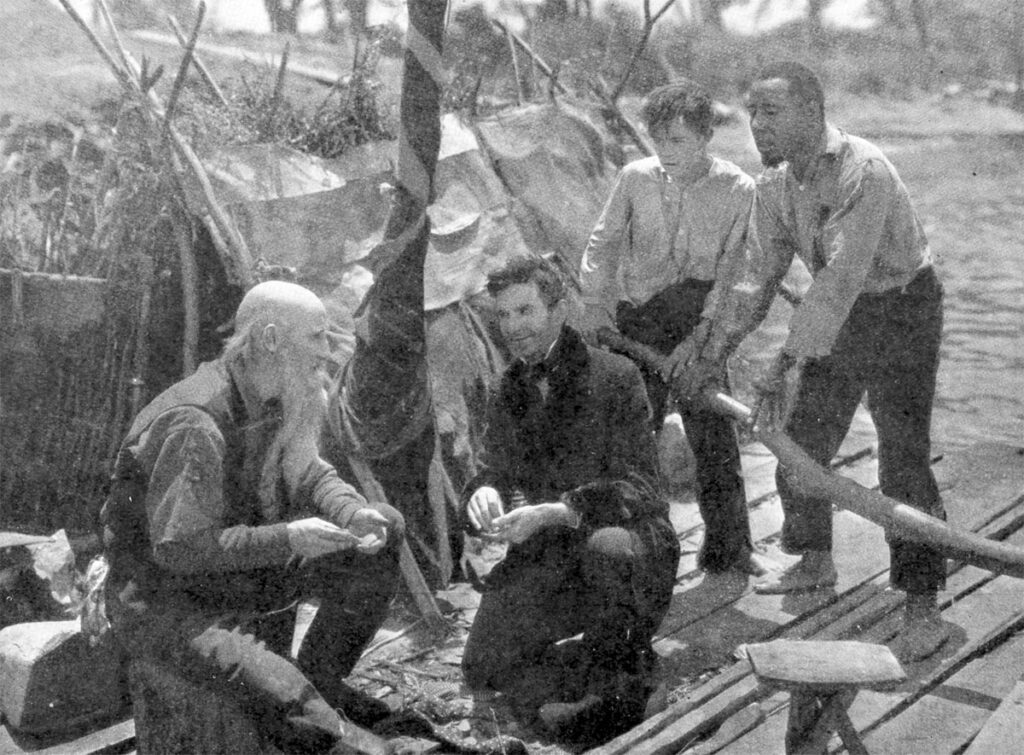
Reed’s face may be familiar to fans of films from the 1940s. Per the very brief listing for Reed on Rotten Tomatoes, “from 1939 to 1947, George H. Reed was a regular in MGM’s Dr. Kildare series as elderly hospital orderly Conover, whose principal job it was to pilot the wheelchair bearing the curmudgeonly Dr. Gillespie (Lionel Barrymore).”
I haven’t seen the Kildare films, but I have a feeling one of the best roles Reed ever got in movies may very well have been as J. Wellington Norcross in One a Minute. (Reed’s Wikipedia entry does not list this film in his filmography. Wanna fix it?)
FindaGrave lists him as born November 27, 1866 in Macon GA and died on November 6m 1952, and is buried in Angelus Rosedale Cemetery in L.A.
One a Minute (1921), starring Douglas MacLean, is available on the new DVD The Douglas MacLean Collection from Undercrank Productions, available here.
